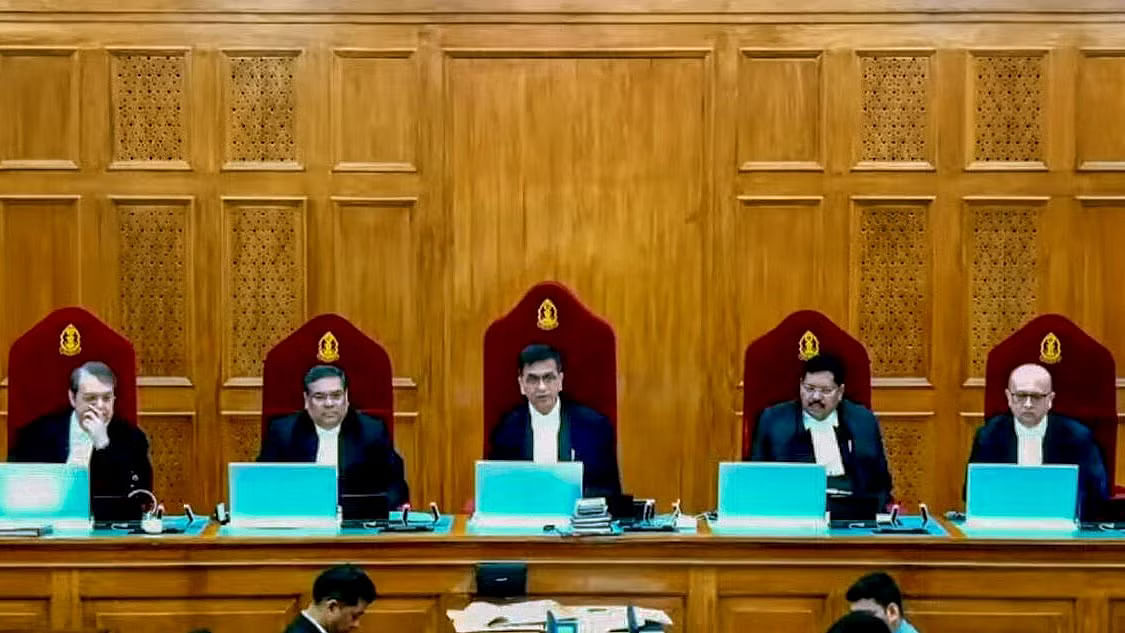
Supreme Court Justice B R Gavai (Fourth from left).
Credit: PTI Photo
Kolkata: Supreme Court Justice B R Gavai on Friday said a major challenge for the future of medical surgery is ensuring equitable access to emerging technologies.
Speaking at the 'World Congress of Endoscopic Surgeons' here, Justice Gavai said rapid advancements in medical technology often outpace the development of ethical guidelines.
"When technological advancements promise to revolutionise surgery, we also risk deepening the divide between those who have access to high quality healthcare and those who do not," he said.
He said while robotic surgeries and AI-guided procedures offer tremendous potential, the question of cost remains a significant barrier.
"It is our duty to uphold principles of fairness and equality to ensure that progress does not leave behind the vulnerable and marginalised," he said.
Justice Gavai said that the law will have a crucial role to play in advocating the policies that ensure affordable healthcare access, while regulating the monopolisation of medical technologies.
"The law must ensure the principle of universal access, ensuring that no individual is deprived of life-saving surgical innovations simply because of their economic circumstances," he said.
"As we stand on the brink of a new era in surgery, the role of both the medical and legal professions is more important than ever," he said.
He asked whether there should be limits on surgical interventions involving human DNA editing, noting that these questions require careful reflection from both medical professionals and the legal community, "as we anticipate future legal disputes over bodily autonomy and human rights."